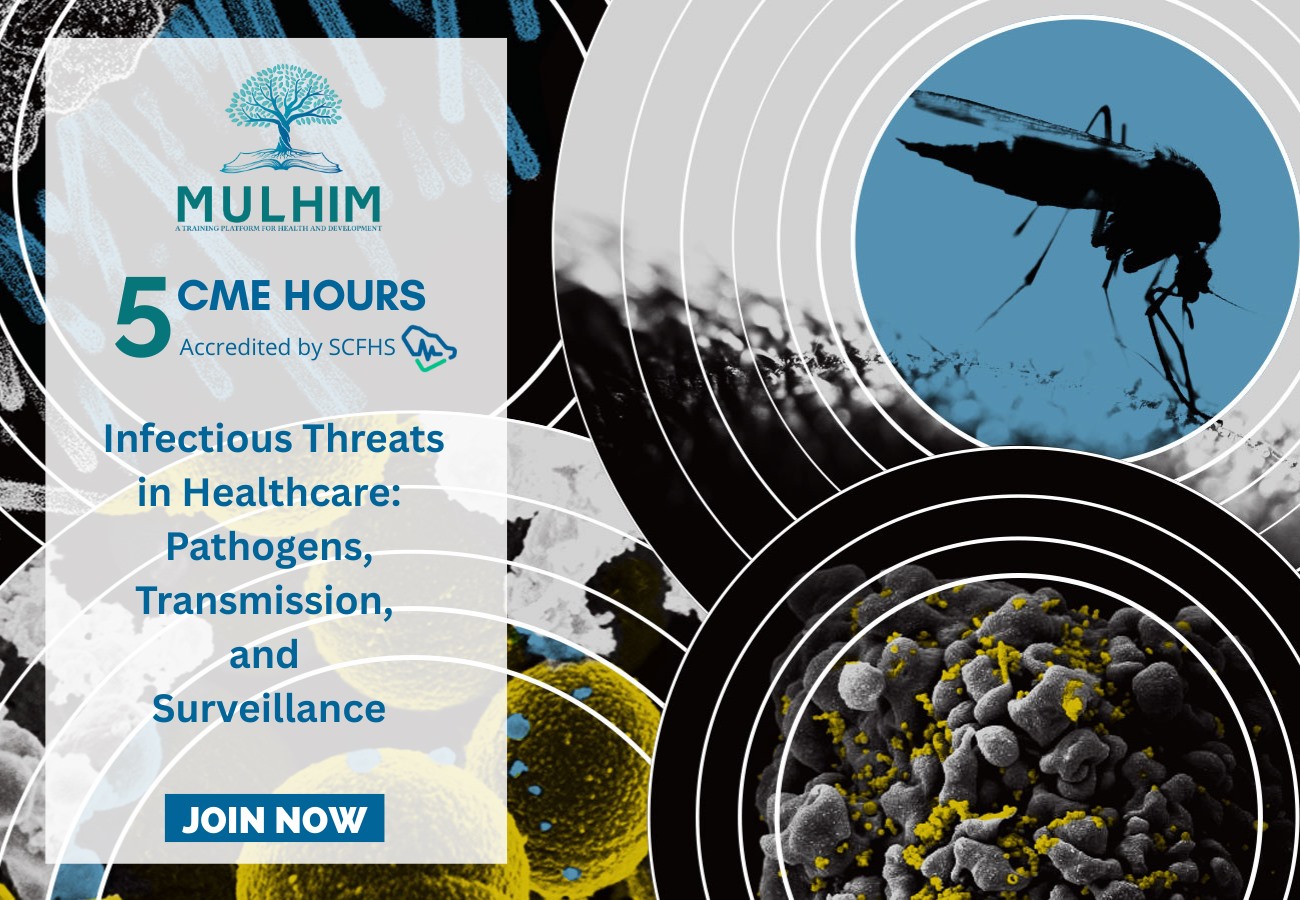


 100.00
100.00
 75.00
75.00
In today’s healthcare landscape, managing infectious threats is not just a matter of clinical urgency—it is a matter of regulatory, institutional, and professional responsibility. This course offers a comprehensive framework for identifying, understanding, and managing healthcare-associated infections (HAIs), drawing from global best practices and adapted to the Saudi healthcare context.
From microbial behavior and modes of transmission to epidemiological surveillance and outbreak response, this course empowers participants to build foundational knowledge and apply it in real-world settings. The program supports the continuing professional development standards of the Saudi Commission for Health Specialties and ensures compliance with Mumaris Plus for healthcare license renewal.
By the end of this course, participants will be able to:
This course uses a modular, outcome-based learning approach, aligned with CME credit hour requirements set by the Saudi Commission for Health Specialties. Each module includes:
To receive the official CME certificate and qualify for Mumaris Plus credit submission, participants must:
The intended audience for this course includes professionals from all medical and healthcare fields.